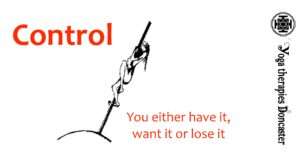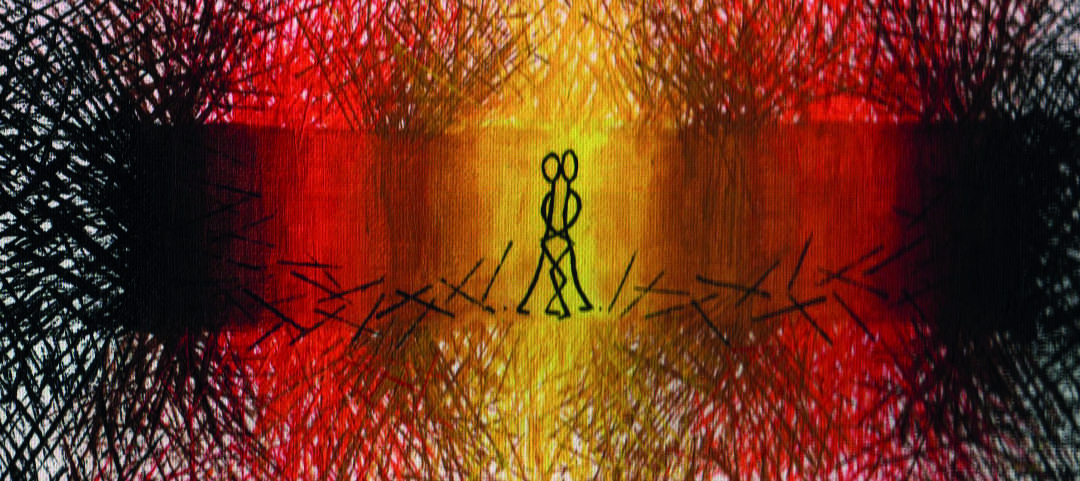WARNING…
if you are in a relationship (beyond the honeymoon period), are totally satiated by your partner in every way; if neither of you have any form of attachment issues; if both were raised by secure, well-balanced caregivers who gave no less than 100% love and compassion, then this article may not be for you.
If, like me, any of the above causes your cells to quiver then read on…
When challenged by the complexity of intimate relationships, we uncover aspects of ourselves that no other life experience could. Through self-reflection, over blaming and shaming, we get to serve those closest to us and simultaneously clean-up our own conflict. Working inwards this way brings our flaws to the surface to be transcended into peace through unity! It’s not easy work, but who said life was easy?
Where it all went wrong
With fear of uncoupling the patriarchal roles of society, most couples ride the marriage railroad through many tunnels of darkness. But why? I often ask, as I look back at the everlasting journey of my parents, “better to suffer together than alone”.
Life stages, for successful human development, suggest we have a positive, secure upbringing by both parents – until at least the age of 12. This early support, alongside constructive growth, should continue through our early teens towards adulthood. A thriving work life balance, would then hopefully deliver the perfect soul mate, for us to settle down with and live happily ever after – ‘till death do us part’. Ah, the romantic fairy tale is born.
Why the fairy tale rarely works
If girls are made from sugar and spice and all things nice and boys are made from snips and snails, and puppy dogs tails, it could be assumed there is a clear winner?
By many objectives, women’s lives have improved over recent decades. Yet their happiness continues to decline, says a paper published in the National Bureau of Economic Research. And with male suicide rates increasing, far outweighing females, it’s clearly not because men have their shit together. So, what’s going on?
Instinctually women know how to care for themselves and others better than men. Genetically women’s productivity, with regards to producing offspring, is time sensitive. To run the risk of a complicated birth, when older, could deprive her family of motherly wisdom. Therefore, to protect her lineage, she shares her life skills with other women, her children and grandchildren over further reproduction. Biologically, she also knows it is wise to seek a good caretaker in case of her absence. In tribal history, woman built networks of care to protect their family. They would have multiple partners with good hunting skills, farming and building ability, good networking and social values.
Men, on the other hand, have unlimited capacity to reproduce and are less concerned with the rolls of caregiver. ‘Offspring producers’ were readily available in the tribe and no single warrior was expected do all the hunting, farming and home building as well as protect his family. Instead a brotherhood of tribesmen raised a township of unity. The only battles fought were those with other tribes.
Fast forward a few thousand years
Through evolutionary pressures, work turnarounds and natures reproductive strategy, the system of sexual monogamy emerged – the patriarchal male female roles were born. Thus, the battlefield of today seems to reside in our living rooms, with a lack of understanding for positive role play and biological needs unmet. With a lack of tribe/community, an undercurrent of fear of loss and resentment fuels many relationships. We dread an older existence – of being alone when our mate dies. This causes us to over protect what we have – and breeds anxiety. We know that change is painful, yet we remain stunned and carry on regardless. Through promiscuity, addiction and self-loathing, we secretively carve chinks in our armour. Yet still, the anxiety eats away at us and our inner wounds remain untendered.
Of course, the peer support needed, to raise modern, balanced children, puts heavy strain on parenting. Without a good solid foundation, many children and parents under-represent themselves. This conundrum creates isolated family units and future unbalanced parents. The habit patterns of such adults, gear towards a sense of lack. Therefore, desire and control dominate over self-orientation and healthy bonding and so the vicious cycle spins.

The bottom line is this, when relationships lack balance, in both masculine and feminine support, someone’s gonna get hurt!
Steps for change
For healthier social connections, we might learn from the traits of the mythological ‘She Wolf’ and ‘Man Cub’ within ourselves.
The Man Cub is as a young reckless animal, underdeveloped as a hunter, in the sense he is without purpose and afraid to share his vulnerabilities. He wears his confidence across his chest and collects ‘things’ that disguise his sense of lack. His muscles are his armour and he polishes his ego frequently. He lives bitterly inside his head, alone and isolated with outbursts of extroversion and neuroticism, attempts to heal his suffering. Alternatively, a wolf knows he must press on and hunt out his purpose.
The mythological She Wolf was born out of necessity, to survive in the relational jungle of life. She is reactive, a predator, like the animal itself. The modern She Wolf however, needs to be pampered and shown unlimited attention, perhaps due to a lack of self-love or unbalanced parenting. With the wrong intention they can be dangerous. She Wolves will work their ancestral blood-line to get what they want with no regard of the consequences. When the two meet, sparks fly.
Rise of the feminine – but at what cost?
Domestic violence, through fear of loss, and ‘ownership mind-set’ has caused the feminine to rise and rightly so. But this has come with a cost. Many men have given up, change is too difficult or the competition too fierce (remember the tribal mind-set, a brother may become a potential caregiver). Some Men Cubs try to accommodate, by changing their role or appearance, only to be down trodden by a She Wolf with a superiority complex.

Women who abuse the She Wolf dynamic must realise the impact of their selfishness. Setting up a caregiver ancestrally, was far different to the excitement of a new lover today. Men must reduce isolating themselves and be more diverse in how they invest their time. Both parties could be more aware, that disrespect causes lives to be lost – remember the suicide statistics – they are based on feelings of being a failure.
What is clear is we need better communication and a broader sense of community: Men could better observe their instincts, in how they see others as a potential threat, and learn to support one another instead. Women, who share positive emotions much easier, could relax their ‘fight’ for equality and do what they do best. Future role models will understand their genetic dispositions and build resilience towards helping others transcend out-dated values that no longer serve us.
Conscious Connectivity
We may have abandoned tribal living, but what do we want today? Good health, life coordination, love and support with room for desire, respect, communication and balanced social interactions – all the above. Why? Because biologically we are built to live in harmony, relationships are more influential to our health than any other choice we make. Confusion is cancer for the mind. Conscious connectivity is the antidote.
The sensible questions we might ask are: how can we influence more co-parenting within our communities, taking pressure away from single parents and underprivileged care providers? How can we nurture deeper connections amongst the adults we mix with? Can we generate more healthy discussions in our relationships? Can we learn to communicate our needs and be more open when expectations are unmet? When there is disharmony, can we be brave enough to work on ourselves or simply walk away?
Staying together in a dysfunctional relationship, perpetuates pathological trauma for all concerned. Living apart, may just be the solution to keeping love alive? This shift in ‘polarity consciousness’ is the responsibility of the men and women of our time. To bathe in an ocean of love, ought not lead towards treading water until one party drowns.


Recent Comments